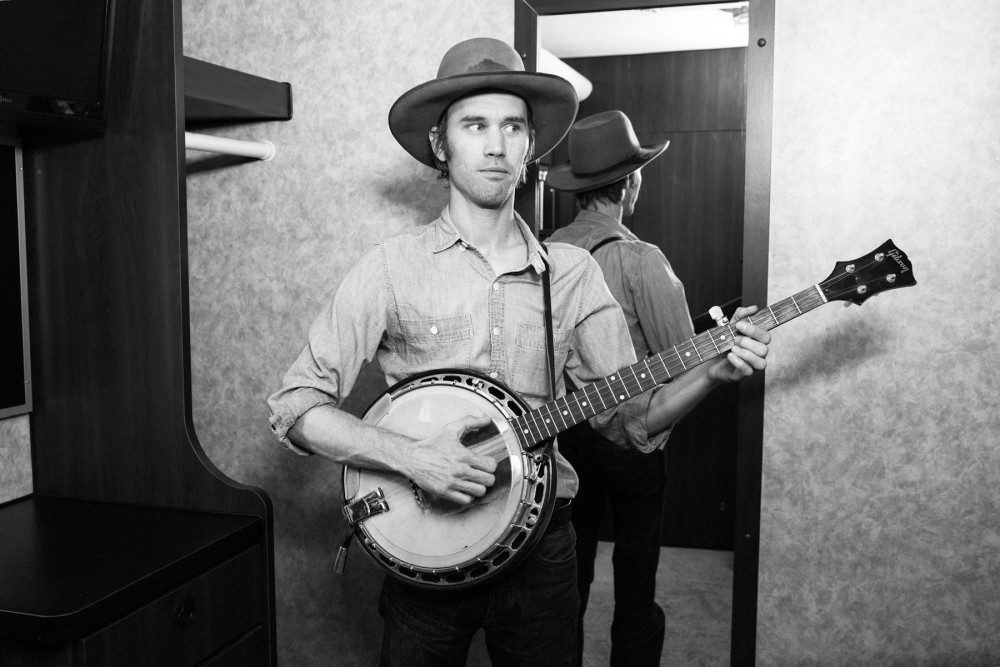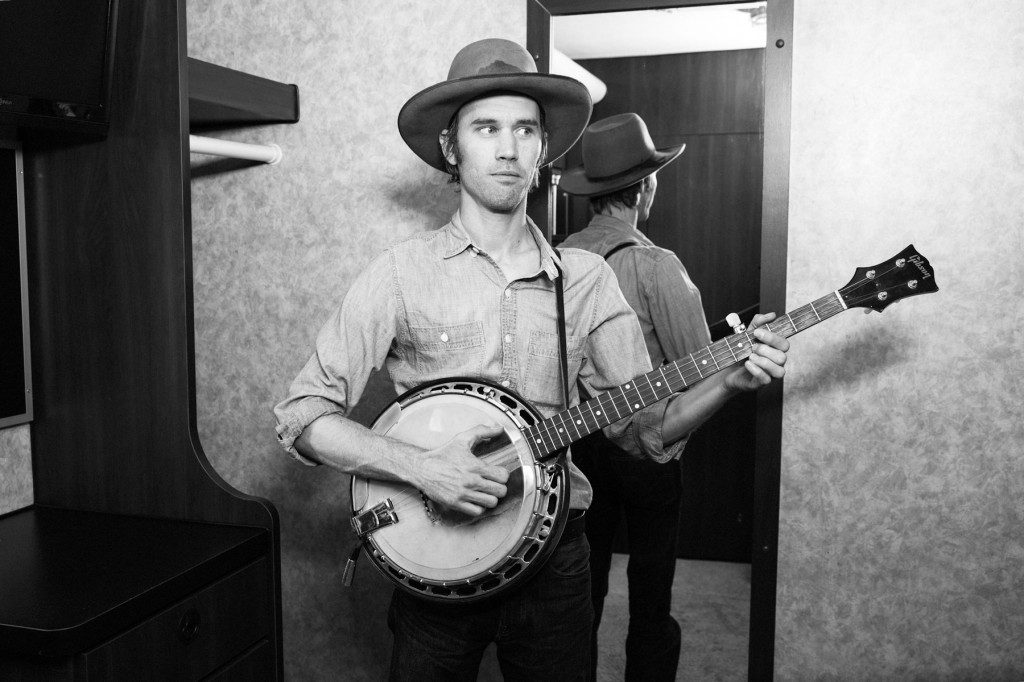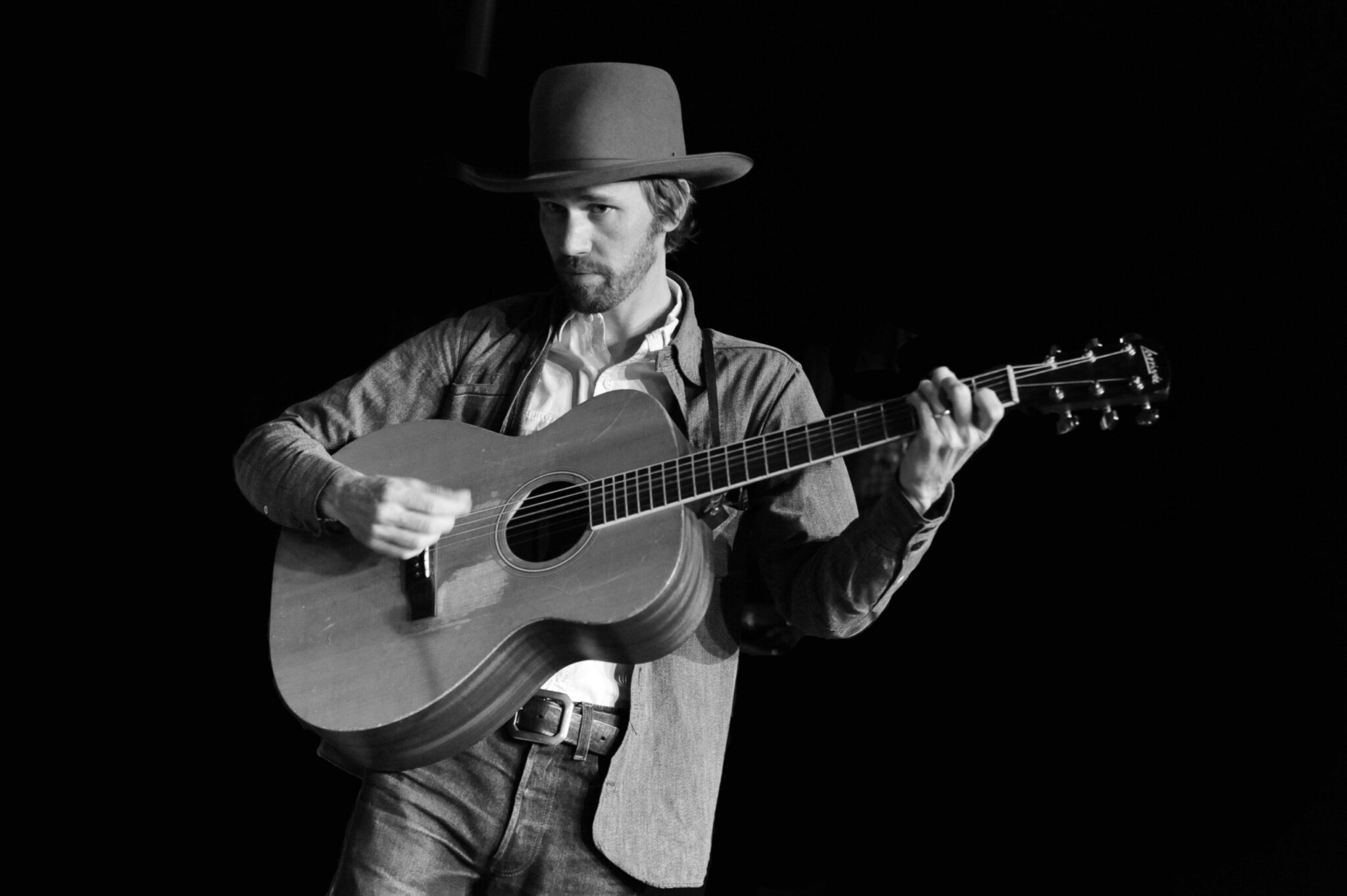
Three years ago I went to a concert in San Pedro, California. I had bought my ticket to see a British folk band, which shall remain nameless to keep focus of this article on the brilliant voice of Willie Watson, but I left the concert intensely curious about the band that had played alongside them. At that time Watson was playing with Old Crow Medicine Show and the vitality he brought to the stage was striking. He played banjo, guitar and sang; needless to say I was mesmerized by his artistry. Unfortunately a few years ago I had very forgetful tendencies and by the end of the set I couldn’t for the life of me remember his name. Then, a few months ago, I saw an ad for Willie Watson’s Record Release with a picture of him right in it. I jumped up and exclaimed with excitement; considering the fact that I was in the middle of a library my reaction probably wasn’t appreciated but was quite unpreventable.
I was ecstatic and honored to see Willie in action again, this time as a solo act, so on May 28th I strapped on my boots and headed to Hollywood with a big smile on my face. The show was at the Bootleg Theater, a venue I’d never attended before, and the dark wood floors with low lighting seemed to fit perfectly. The crowd was diverse in style and nature; one group had donned cowboy hats and boots while another rocked Vans and graphic t-shirts. Some of the people attending lived near Willie in Los Angeles and were there to support him. Others had been following him since his early days in music and sat waiting with stars in their eyes.
Willie was born in Watson Glen, New York and was introduced to great music at a young age, with Roy Orbison standing out from the crowd as Willie’s first vocal influence. Later on he became fascinated with Neil Young’s high singing register, which can be heard in Willie’s voice today. Willie spent time travelling around New York developing his sound with Ben Gould in their band The Funnest Game. The band dissolved when Willie met Ketch Secor and Critter Fuqua and they began to play around the “lively old-time music scene” in Ithaca, New York. The group busked around Canada and moved their way down to North Carolina where they officially formed Old Crow Medicine Show and were discovered by folk-country legend Doc Watson. After a long and fruitful career with OCMS, Willie split, saying that “it was time to move on and find a new situation.” I think that Willie’s time flying solo has been fruitful, with his first solo album seeing release on May 6th of this year.
Folk Singer Vol. 1 was produced by Acony Records in Nashville, Tennessee and is a mixture of classic folk and blues tunes with Willies’ personal touch added; the mix is brilliant. My favorites include “Keep It Clean,” a blues classic written by St. Louis singer Charley Jordan, and “Mother Earth” a blues song from 1951 originally recorded by Memphis Slim. While Willie was intimidated by the “singer-songwriter expectation” (meaning when he tells people that he didn’t write the songs he’s performing they seem less impressed), I think that Willie sticking to the roots of folk and blues is truly incredible. And as his old friend and producer David Rawlings has said, “Willie is the only one of his generation that can make me forget these songs were ever sung before.”
As he walked on stage the crowd erupted with hoots of delight, quickly replaced by Willie’s gritty voice and quick guitar riffs. Throughout the show Willie transitioned between banjo, guitar, and even harmonica. His performance had a sassiness to it; before one of his songs he asked the audience, “Would you folks like to hear a song about heartbreak or about a prostitute?” Of course the overwhelming response was wholeheartedly for the prostitute. When Willie performs, his voice matches his twangy back and forth gestures and recalls some combination of Pete Seeger and Bob Dylan (although he is much too humble to accept that). He had wanted this album to be “more of a listening experience” that will “take people through all walks of life,” and he’s certainly accomplished this goal during his performances by bringing in themes of heartbreak, scandalous sexual references, sing-alongs and even a bit of Willie Watson wisdom.
Many of the artists who Willie draws inspiration from have passed on, leaving only their amazing records and songs behind. To Willie these people are legends from the beginning of the folk and blues movement, and have left behind a thriving community in the artists they’ve inspired. I truly believe that Willie Watson (jerky dancing motion and all) is the next great voice revitalizing the world of folk music. I can’t wait to see what comes from him next.



